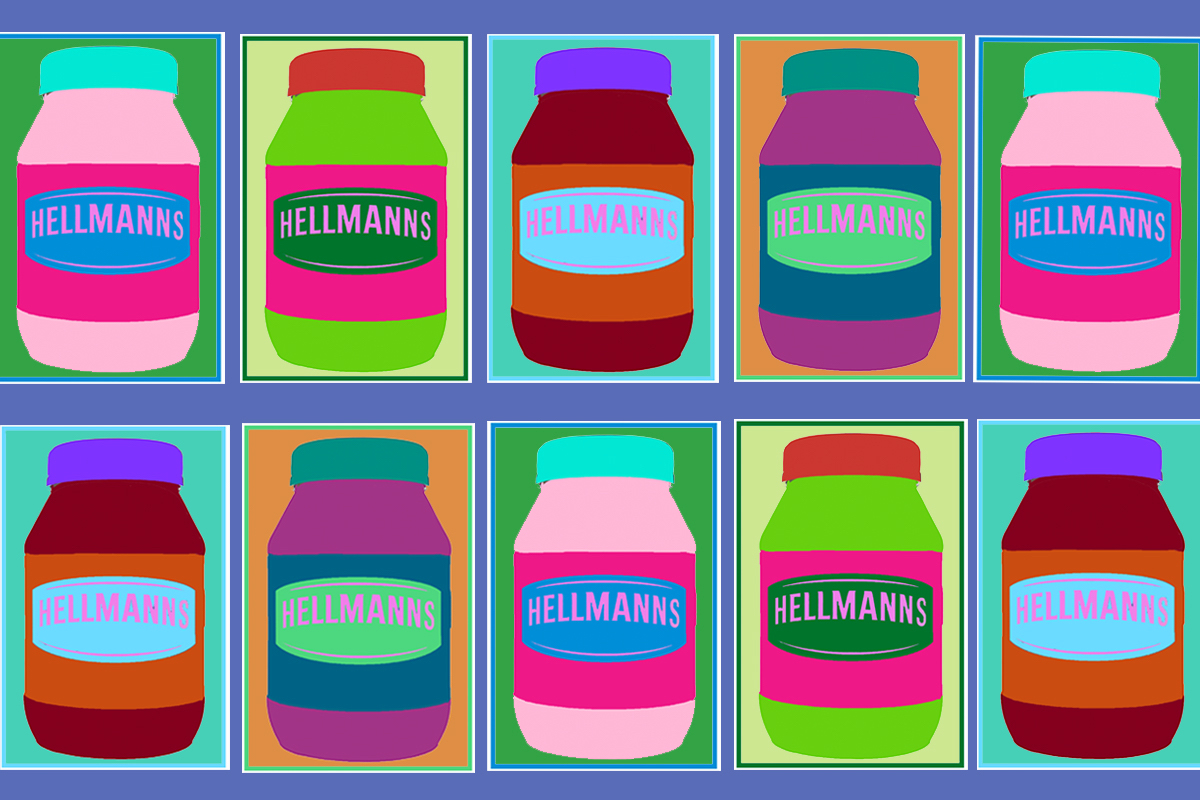Moving from the Northeast to the Southeast as a young girl, mayonnaise became an omnipresent condiment — except in my Jewish house. We had a jar in our fridge that existed solely for tuna fish, but the idea of putting it on a turkey sandwich or a hamburger (or anything else) would cause my parents’ faces to contort with revulsion. One of my college friends, a Southern Jew herself, put it simply: “Mayo is a goyish food.” She asserted this in a sharp whisper, her body almost shivering as she looked over her shoulder, as if she expected a dybbuk carrying Hellman’s to appear at any second.
As I grew up, I noticed that when I asked for mayo around my extended family or Jewish friends from other places, they would exchange glances that said, “Is she serious?” or tell me outright that they thought mayonnaise was disgusting. The ensuing shame from whoever watched me eat it only added to the decadent pleasure. Using mayo as a condiment became a telltale sign that I wasn’t Jewish like they were. Except I was, and I am.
Mayonnaise is the miracle that results from oil, egg yolks, and acid. Creamy and fattening, it’s typically a pale yellow or off-white color. As a young girl, I marveled at mayo’s versatility — you could add it to literally any condiment and it somehow became better! Ketchup became thousand island dressing. Mustard softened and sweetened into a pale yellow “honey mustard” my mother considered monstrous.
Is mayo monstrous? David Merritt Johns, writing for Slate, suggests the 1920s as the root of Jewish mayo mishegas, as “the frequent combination of white mayonnaise, white bread, and white gentiles created a lunchroom culture clash in which [Jews] were on the losing end.” Some of the Jews from those cafeteria conflicts inevitably grew up into comedians who made the “mayo-munching majority a target for gentle ridicule.”
But what about now? To consider what mayo means to Jews and Jewishness today, I asked a few friends their thoughts.
Jess, 30, a lifelong Massachusetts resident, professes that mayonnaise is “the MSG of condiments” because “you don’t know it’s there but it somehow improves the flavor for the masses.” Yet she proudly keeps a mayonnaise-free home. Michelle, 32, a Florida native who has relocated to Boston, admits, “I don’t think mayo is a Jewish condiment,” but does keep a jar in her fridge for tuna and egg salads. Noa, 26, a rabbi’s daughter from Michigan who now calls San Francisco home, loves it on her sandwiches but admits, “tuna feels sort of Jewish somehow, but there is nothing more goyish to me than eating a turkey and cheese sandwich with mayo on it.” Curious, I asked her about another pale offender of palates, Ranch dressing (which can have a mayo base). She told me it is “the most goyish condiment ever” and she does not care for it.
Jessica, 27, the daughter of Russian Jews who immigrated to Minnesota, told me a more nuanced story. She started by asserting, “I hate mayo and mayo hates me,” which she says is a shame because it is slathered all over traditional Russian dishes. She divulges, “To get melodramatic, it feels like my hatred of mayo is an embodiment of the ‘stuck-in-between-ness’ that a lot of hyphenated identities feel. I’m Russian-Jewish-American… but my hatred of mayo seems to split me off onto the American [Jewish] side.” Like my mother, Jessica’s mother finds her relationship with mayo baffling — except in the other direction. “Mayo is the thing my mom and I allllllways stick on. She gets so frustrated that I don’t like it because I should like it.”
I like mayo in the traditional ways Northeast Ashkenazic Jews allow it — egg salad and tuna salad – and the surprising places it turns up in secular culture — sandwiches and softened versions of ethnic condiments, to name a few. I still find the polarizing reactions mayonnaise receives quite puzzling. Remember, mayonnaise — which Jews and millennials alike have disparaged — is actually French, arguably the arbiters of gourmet cuisine. Yet, in America, we have coded mayo consumption as a behavior that reveals how “Jewish” (or not) someone is.
I recently went to a Shabbat dinner at an Israeli couple’s home. In many ways, it felt like a quintessential Jewish experience. It started with homemade challah that was so perfect I asked where they’d purchased the bread. There was a delicious soup kept warm on the hot plate. We then progressed to salads, kugel, and baked salmon. As soon as she served herself, our hostess, an Orthodox woman, jumped up and went to the fridge. I wondered what delightful thing she might have forgotten. Instead, she removed a small jar of mayonnaise, spread a generous dollop on her salmon, and offered the jar to the table. There was no shame or guilt or embarrassment in her consumption. Her Jewishness, like mine, could not be impugned by a blob of mayo.



